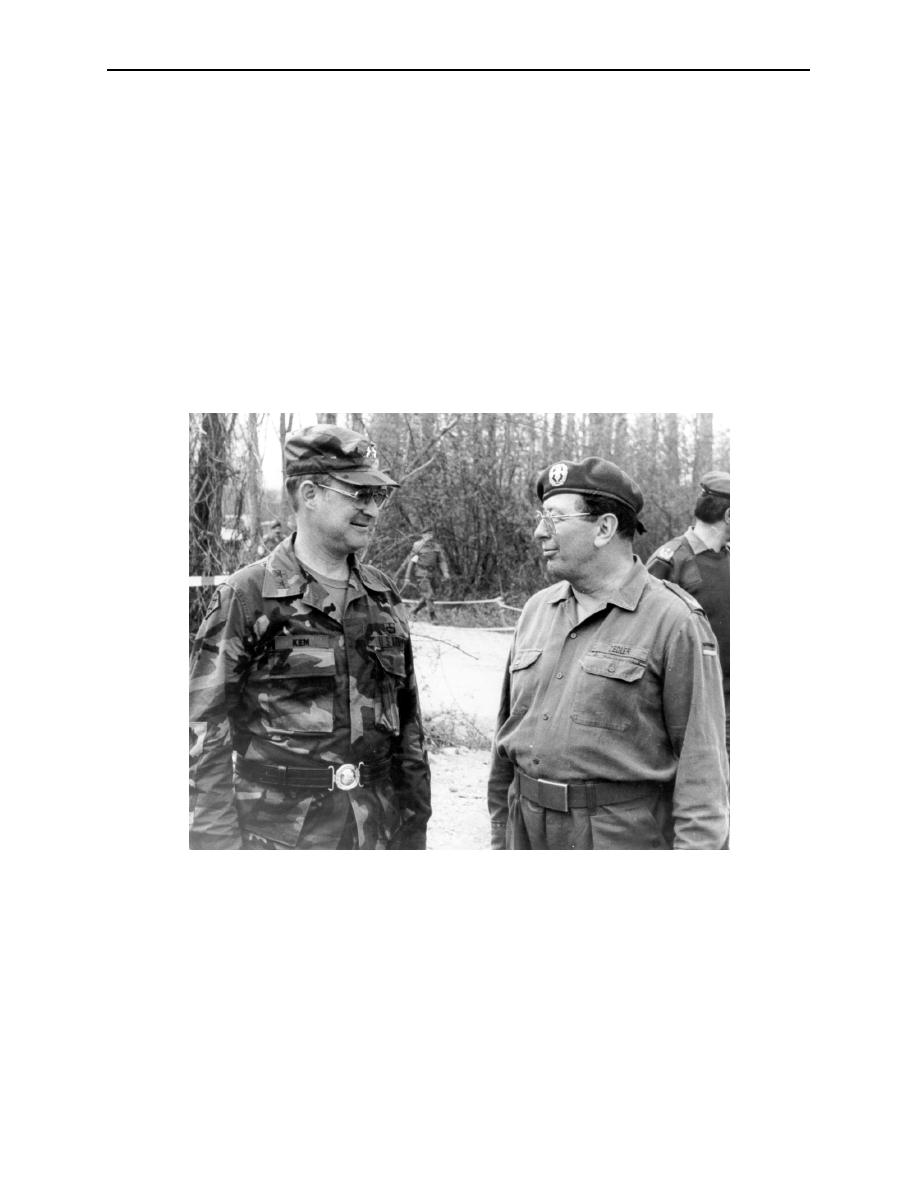
Engineer Memoirs _____________________________________________________________________
I'm really describing now something that's really part of the divisional engineer battalion.
The fact is that if you only accept the divisional battalion as contributing to the division, then
the platoon supports a task force and the platoon leader is so overextended with his duties
with serving that task force S3 and the commander that he has difficulty in commanding his
platoon. His infantry counterpart is only commanding his platoon, working for a company
commander who's got just three or four of these companies working in a tight-knit element.
The engineer platoon is working throughout the task force, a much broader area, and yet he
has that other responsibility to the staff--in the command element of the maneuver task
force. So, it's that extra addition that makes the engineer platoon leader's task more difficult.
That same thing happens at battalion level when that engineer commander has to operate his
companies throughout the division area and has division engineer staff responsibilities. That
engineer battalion commander also has the biggest battalion in the division, with all the
headaches of maintenance and systems.
General Kem (left) with Brigadier Roland Zedler, Commandant of
the West German engineers, during a visit to a German engineer
river crossing in 1986.
So, I think the engineer battalion commander does have a bigger command problem than his
counterparts. I think the company commander and the platoon leader have a battlefield
operations problem more difficult than their counterparts, but it may not be a command
problem. That is what I was asking when I first started because of the word "command." If
command comes with responsibilities as the task force engineer or the brigade engineer, then
348



 Previous Page
Previous Page
